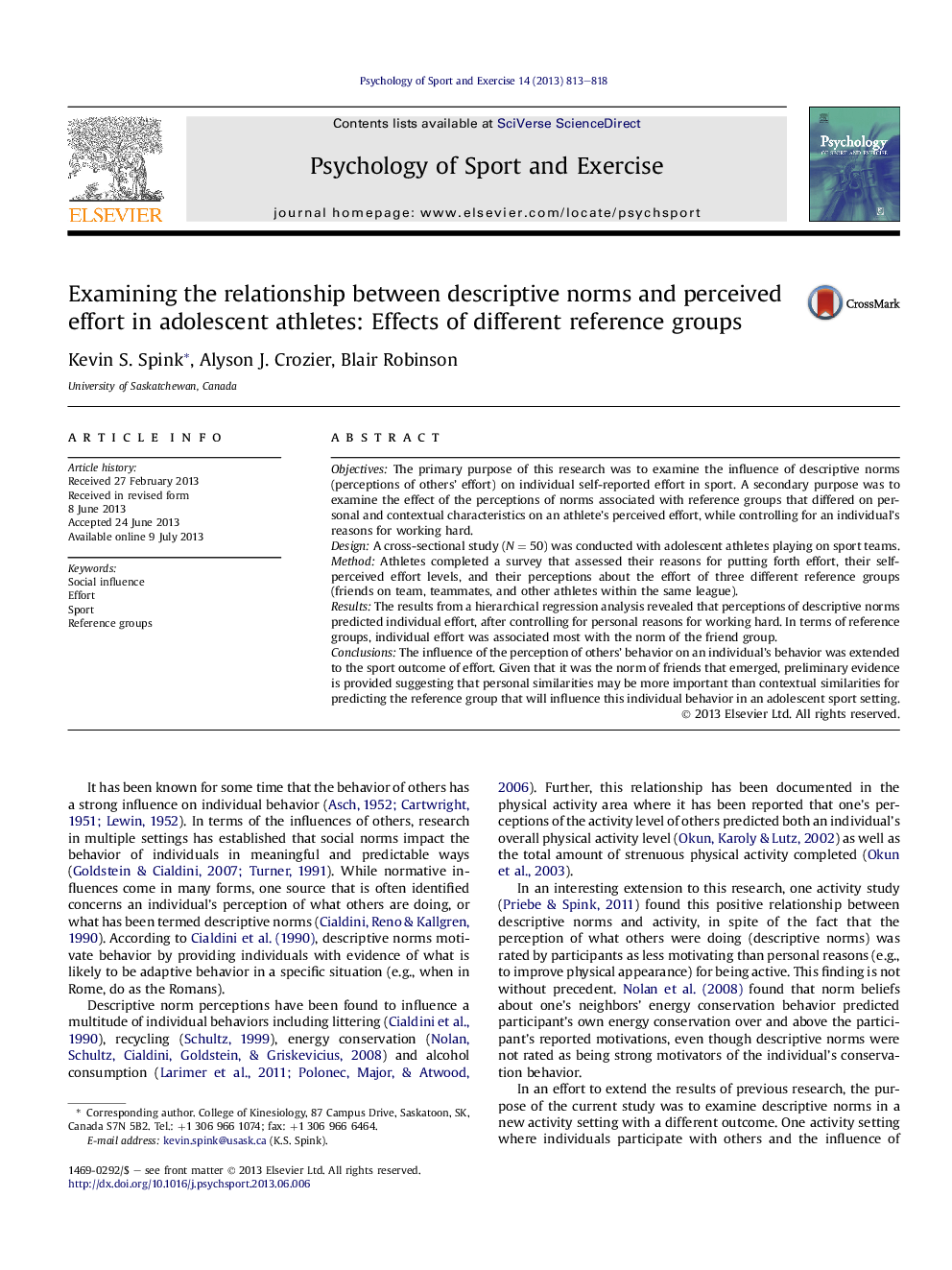| کد مقاله | کد نشریه | سال انتشار | مقاله انگلیسی | نسخه تمام متن |
|---|---|---|---|---|
| 894478 | 1472120 | 2013 | 6 صفحه PDF | دانلود رایگان |

• Descriptive norms predicted effort beyond an individual's motivations.
• Perception of friends' effort was most predictive of individual effort.
• Norm-consistent behavior associated more with groups sharing personal similarities.
ObjectivesThe primary purpose of this research was to examine the influence of descriptive norms (perceptions of others' effort) on individual self-reported effort in sport. A secondary purpose was to examine the effect of the perceptions of norms associated with reference groups that differed on personal and contextual characteristics on an athlete's perceived effort, while controlling for an individual's reasons for working hard.DesignA cross-sectional study (N = 50) was conducted with adolescent athletes playing on sport teams.MethodAthletes completed a survey that assessed their reasons for putting forth effort, their self-perceived effort levels, and their perceptions about the effort of three different reference groups (friends on team, teammates, and other athletes within the same league).ResultsThe results from a hierarchical regression analysis revealed that perceptions of descriptive norms predicted individual effort, after controlling for personal reasons for working hard. In terms of reference groups, individual effort was associated most with the norm of the friend group.ConclusionsThe influence of the perception of others' behavior on an individual's behavior was extended to the sport outcome of effort. Given that it was the norm of friends that emerged, preliminary evidence is provided suggesting that personal similarities may be more important than contextual similarities for predicting the reference group that will influence this individual behavior in an adolescent sport setting.
Journal: Psychology of Sport and Exercise - Volume 14, Issue 6, November 2013, Pages 813–818